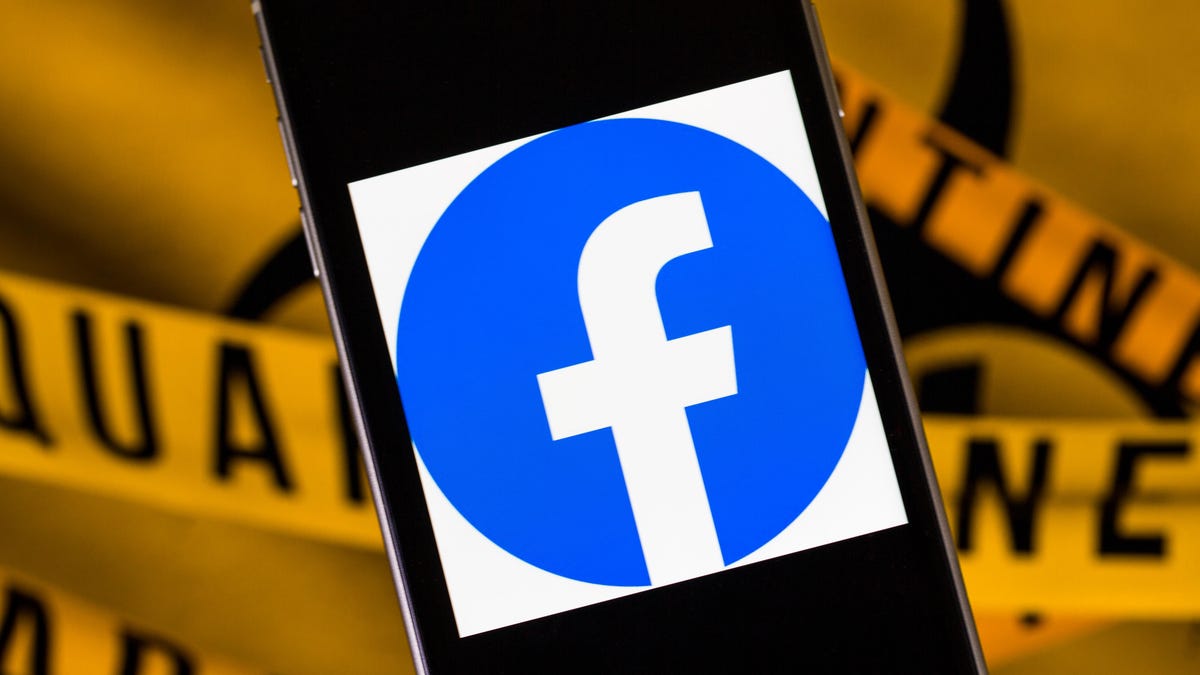Facebook doubles down on video, VR for work amid COVID-19 pandemic
More people are working from home because of the coronavirus crisis.

Facebook wants more people using its products for work.
As people stay home to slow the spread of the coronavirus, Facebook is rolling out more ways for workers to video chat and businesses to use virtual reality to train employees.
The new features show how Facebook is responding to the rise of remote working amid a pandemic. The company has an enterprise version of the social network, called Workplace, that it says has more than 5 million paid users. Companies such as Walmart , Starbucks and Spotify use Workplace. Facebook said Thursday that Workplace users will be able to make video calls through Portal TV , a device that lets you video chat on a bigger screen. Taking on videoconferencing app Zoom, Workplace will also allow users to broadcast live videos on Portal and chat with up to 50 people through a new feature called Rooms.
Julien Codorniou, vice president for Workplace, said the pandemic has prompted Facebook to change its product roadmap to "meet the expectations of the market." Workplace has been focusing less on features such as analytics and more on video chatting as use of the tool grows.
Codorniou said Workplace can help businesses create a community online, fostering an environment that's become more important as more people work from home. Workplace has features such as groups and video calling.
"In a way, COVID accelerated that. We've been catapulted into the future of work, and what was supposed to happen in five years happened in three months," he said.
Facebook, which owns VR headset maker Oculus, also said Thursday that it's making generally available a platform used to deploy VR in the workplace. Called Oculus for Business, the platform was announced last year and is now out of closed beta testing. VR has been used in different ways in the office, including to train surgeons and retail workers, allowing them to learn new skills without having to interact with a person face-to-face.
Facebook sees VR as the next big computing platform, but the technology hasn't gone mainstream yet. Cost is one barrier. Depending on the model, Oculus VR headsets can cost from $199 to $499. People are also having trouble getting a hold of Oculus VR headsets during the pandemic. The devices are currently out of stock on the Oculus website, partly because of the rise of consumer demand and the impact the coronavirus has had on manufacturing.
Maria Fernandez Guajardo, who oversees Facebook's AR/VR enterprise products, said VR is in a "visionary" stage as people experiment with different ways to use the technology.
But the pandemic could fuel the adoption of VR more quickly than anticipated, she said. Facebook CEO Mark Zuckerberg projected in 2016 that it would take at least 10 years for VR to become a "mainstream big thing." Before the pandemic, the VR industry had "a huge mountain to climb" when it came to getting people to understand the power of social presence and working remotely, Guajardo said. Now they're aware of both the benefits and downsides of working from home.
"Whatever the timeline was, I think it has been reduced by three or four years," she said.

